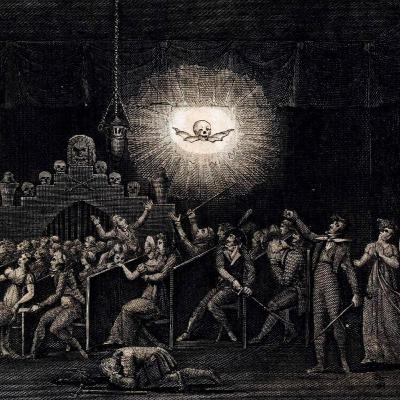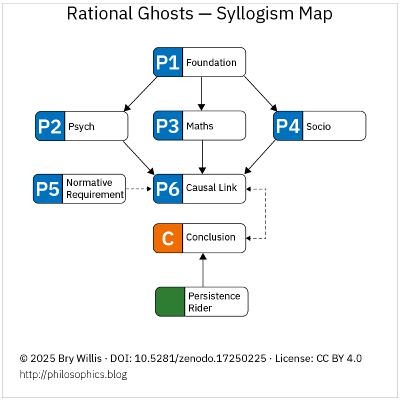𝑻𝒉𝒆 𝑴𝒚𝒕𝒉 𝒐𝒇 𝑯𝒐𝒎𝒐 𝑵𝒐𝒓𝒎𝒂𝒍𝒊𝒔: 𝑨𝒓𝒄𝒉𝒂𝒆𝒐𝒍𝒐𝒈𝒚 𝒐𝒇 𝒕𝒉𝒆 𝑳𝒆𝒈𝒊𝒃𝒍𝒆 𝑯𝒖𝒎𝒂𝒏 [Essay]
Description
This is a reading of an essay by Bry Willis that continues the Anti-Enlightenment project through an archaeological examination of modernity’s most enduring fiction: the “normal” human. It traces the evolution of Homo Normalis from a statistical artefact into a moral ideal, revealing how legibility—the power to render life visible, measurable, and administrable—became the operating logic of Western governance.
From Quetelet’s l’homme moyen and Galton’s eugenic arithmetic to Foucault’s biopolitical regimes and the affective capitalism of the present, the essay follows the transformation of normality from virtue to infrastructure. Psychology, sociology, and critical theory each inherit the same compulsion toward legibility: the drive to make persons, populations, and emotions governable under the rhetoric of care.
The text culminates in a refusal—an “ethics of variance”—that rejects the metaphysics of wholeness and perfection. It argues that lucidity, not redemption, remains the final virtue: to know the apparatus intimately enough to decline its myth of order while continuing to live within it.
The entire essay, including citations and references, is archived at Zenodo: https://doi.org/10.5281/zenodo.17290628.
(Part of the Anti-Enlightenment Series, alongside “Against Agency” and “The Discipline of Dis-Integration.”)https://zenodo.org/communities/antienlightenment

![𝑻𝒉𝒆 𝑴𝒚𝒕𝒉 𝒐𝒇 𝑯𝒐𝒎𝒐 𝑵𝒐𝒓𝒎𝒂𝒍𝒊𝒔: 𝑨𝒓𝒄𝒉𝒂𝒆𝒐𝒍𝒐𝒈𝒚 𝒐𝒇 𝒕𝒉𝒆 𝑳𝒆𝒈𝒊𝒃𝒍𝒆 𝑯𝒖𝒎𝒂𝒏 [Essay] 𝑻𝒉𝒆 𝑴𝒚𝒕𝒉 𝒐𝒇 𝑯𝒐𝒎𝒐 𝑵𝒐𝒓𝒎𝒂𝒍𝒊𝒔: 𝑨𝒓𝒄𝒉𝒂𝒆𝒐𝒍𝒐𝒈𝒚 𝒐𝒇 𝒕𝒉𝒆 𝑳𝒆𝒈𝒊𝒃𝒍𝒆 𝑯𝒖𝒎𝒂𝒏 [Essay]](https://s3.castbox.fm/24/d2/90/1f1d89abd328cf276902c5958a856e1e11_scaled_v1_400.jpg)

![𝑻𝒉𝒆 𝑫𝒊𝒔𝒄𝒊𝒑𝒍𝒊𝒏𝒆 𝒐𝒇 𝑫𝒊𝒔-𝑰𝒏𝒕𝒆𝒈𝒓𝒂𝒕𝒊𝒐𝒏: 𝑷𝒉𝒊𝒍𝒐𝒔𝒐𝒑𝒉𝒚 𝑾𝒊𝒕𝒉𝒐𝒖𝒕 𝑹𝒆𝒅𝒆𝒎𝒑𝒕𝒊𝒐𝒏 [Essay] 𝑻𝒉𝒆 𝑫𝒊𝒔𝒄𝒊𝒑𝒍𝒊𝒏𝒆 𝒐𝒇 𝑫𝒊𝒔-𝑰𝒏𝒕𝒆𝒈𝒓𝒂𝒕𝒊𝒐𝒏: 𝑷𝒉𝒊𝒍𝒐𝒔𝒐𝒑𝒉𝒚 𝑾𝒊𝒕𝒉𝒐𝒖𝒕 𝑹𝒆𝒅𝒆𝒎𝒑𝒕𝒊𝒐𝒏 [Essay]](https://s3.castbox.fm/12/34/98/d181d620be22e37fdfb05f6ecf0a3c2daa_scaled_v1_400.jpg)
![𝑨𝒈𝒂𝒊𝒏𝒔𝒕 𝑨𝒈𝒆𝒏𝒄𝒚: 𝑻𝒉𝒆 𝑭𝒊𝒄𝒕𝒊𝒐𝒏 𝒐𝒇 𝒕𝒉𝒆 𝑨𝒖𝒕𝒐𝒏𝒐𝒎𝒐𝒖𝒔 𝑺𝒆𝒍𝒇 [Essay] 𝑨𝒈𝒂𝒊𝒏𝒔𝒕 𝑨𝒈𝒆𝒏𝒄𝒚: 𝑻𝒉𝒆 𝑭𝒊𝒄𝒕𝒊𝒐𝒏 𝒐𝒇 𝒕𝒉𝒆 𝑨𝒖𝒕𝒐𝒏𝒐𝒎𝒐𝒖𝒔 𝑺𝒆𝒍𝒇 [Essay]](https://s3.castbox.fm/59/ea/3f/5c60b63d36fe7200be778d6c2c06f47d45_scaled_v1_400.jpg)



















